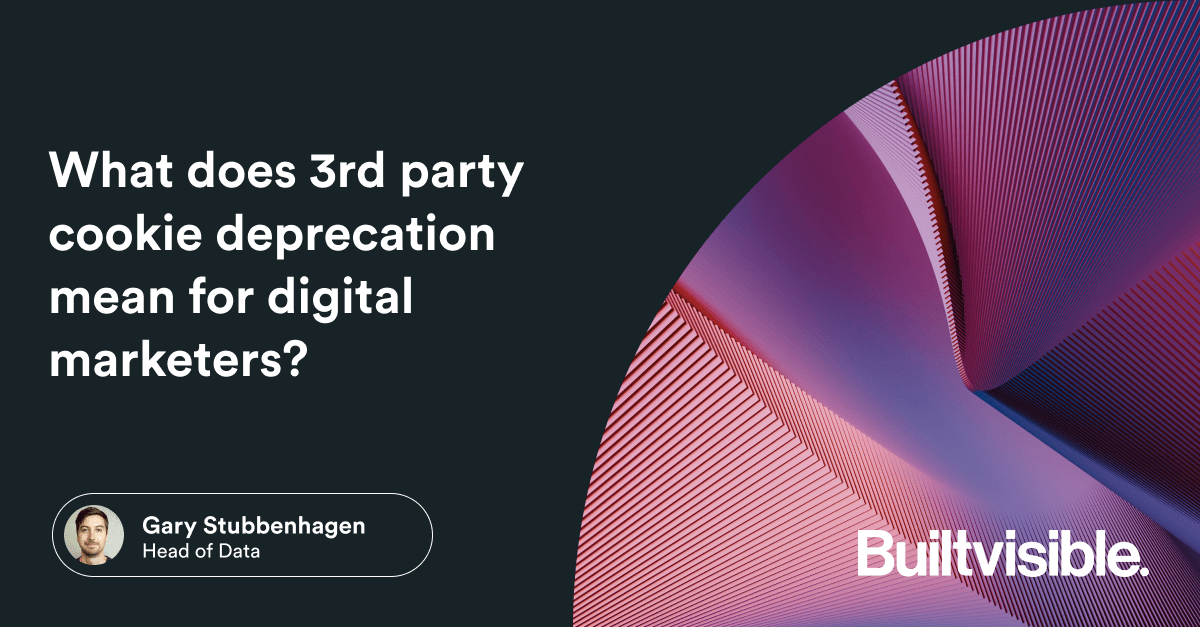
The story so far:
- Google is planning to deprecate third party cookies within its Chrome browser, this will result in third party cookies effectively being blocked for users of that browser and the potential breaking of website functionality that may still rely on them, such as content loaded via an iframe.
- Privacy Sandbox was announced as a privacy-compliant alternative for those use cases where third party cookies are really essential, which is pretty much just digital advertising.
- However, as Google is one of the world’s largest digital advertising providers as well as the developer of Chrome, there is some speculation as to whether this is entirely fair and/or compliant with privacy regulations. Enter the CMA and ICO, who felt compelled to take a closer look.
- As regulatory discussions are famously glacial, it’s pretty clear Google won’t have a clear answer from this process in time for their original, self-imposed deadline of Q3 2024 for the deprecation of third party cookies and so, rather than leave their ad system without measurement, they’re pushing this one back to early 2025.
So, what does this mean for you as a digital marketer?
Well, in all likelihood, not very much at all.
There’s a lot of buzz and concern around the deprecation of third party cookies, most of it by advertising agencies, but the truth is that the rest of the internet left these behind a very long time ago.
All digital analytics tools (Google Analytics, Adobe Analytics, Mixpanel, etc.) and digital experience tools (Clarity, Optimizely, etc.) all use first party cookies and have done so for over a decade. In all meaningful ways, these tools will not be impacted.
Search Console uses Google’s first party data and other organic digital marketing tools are using techniques, such as SERP-scraping, to form their own first party data sets. They will be unaffected by this.
Third party technologies you might load onto your website are most likely loading in a first party context to ensure their functionality is not dependent on third party cookies. It’s well worth a review but I’d be surprised if there was much for you to change here.
GA4 provides demographic data pulled from Google Ads and the ability to publish remarketing lists to Google Ads, since Google Ads data requires third party cookies these features will be affected. They need Privacy Sandbox to go ahead or another solution to be found.
Some agencies have been pushing server-side tracking solutions – you do not need one. These solutions can be great and definitely have a role to play in a digital market ecosystem, but trying to force everything to work server-side will have a detrimental impact on insights and will do nothing to mitigate any functionality at risk, such as the GA4 demographic data or remarketing lists mentioned above.
And the elephant in the room? It’s only Chrome that still bothers with them.
Safari and Firefox both block third party cookies by default and have done so for years, in fact Safari has always had some form of third party cookie restriction since its first version back in 2003. Neither browser has implemented, or announced plans to implement, Privacy Sandbox at time of writing.
Oh, and 1% of Chrome users have been in a deprecation beta for nearly six months* and haven’t even noticed.
So, in summary, we may or may not lose third party cookies in Chrome early 2025 but, to quote the ever-reliable Simo Ahava, “frankly, who cares?” As responsible organic digital marketers, we certainly don’t.
What we do care about however, is making sure digital marketing data is as good as it possibly can to mitigate the risks of change while also informing world class decision making at global brands. If you’d like a view on how to better use your **** within Organic or across digital in general, drop us a line.



